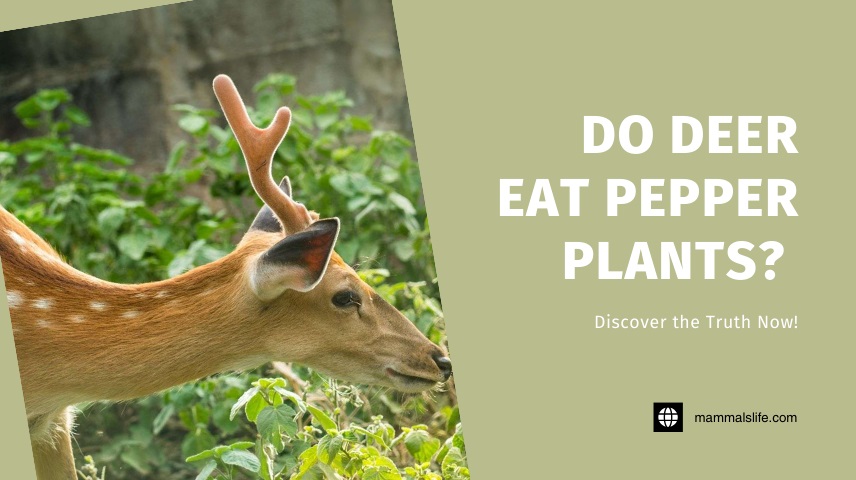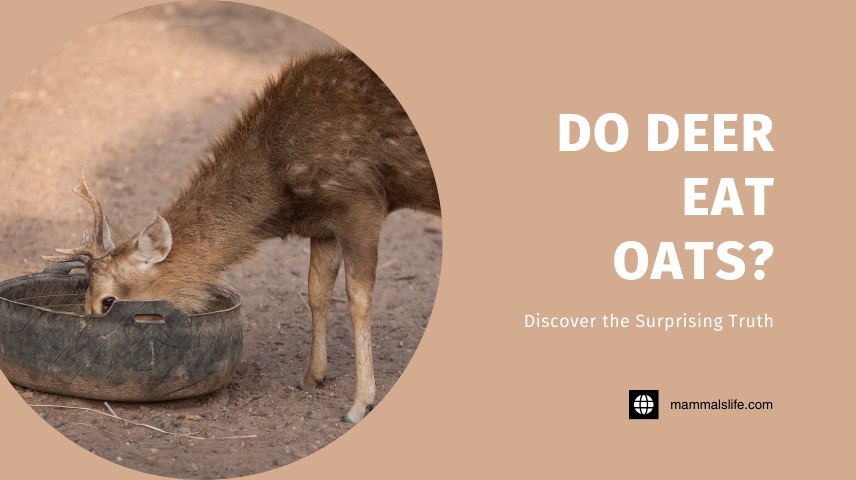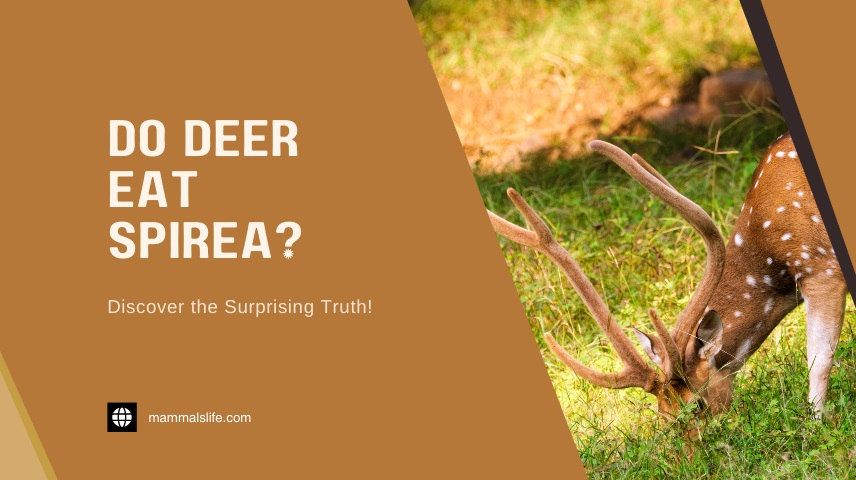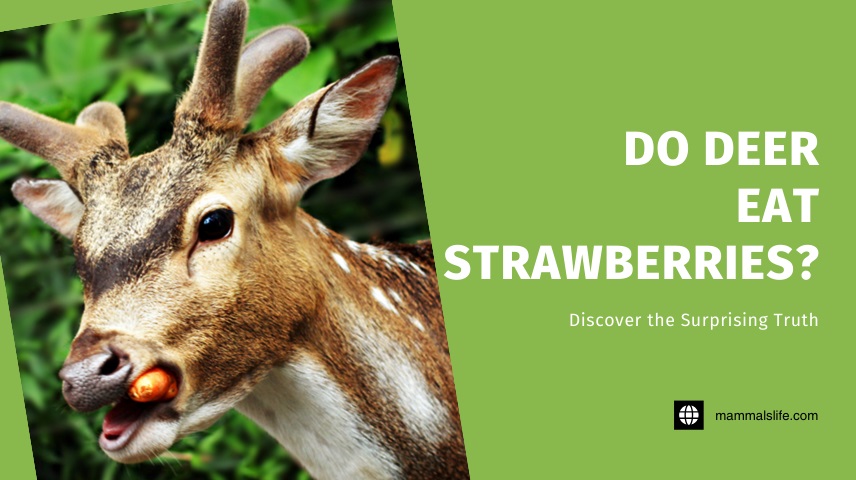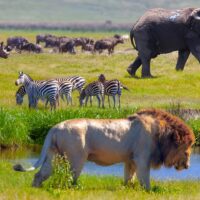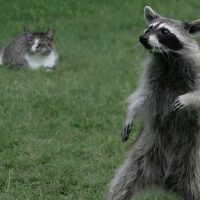Last Updated on February 22, 2025 by Mammals Life
Yes, deer eat pepper plants. They are attracted to the leaves and fruit of the pepper plants.
Deer are notorious for munching on various garden plants, and pepper plants are no exception. These animals seek out the tender leaves and sometimes even the peppers themselves. For gardeners, dealing with deer can be a significant challenge. Effective strategies include fencing, deer repellents, and selecting deer-resistant plant varieties.
Understanding deer behavior helps protect your precious pepper plants. Deer usually feed during dawn and dusk, so extra precautions during these times can be beneficial. Maintaining a deer-free garden requires vigilance and a proactive approach. Simple steps can ensure your pepper plants thrive without becoming a deer’s next meal.
Introduction To Deer And Their Diet
Deer are graceful, gentle animals seen in forests and fields. They are herbivores, meaning they only eat plants. Their diet changes based on what is available. Let’s explore what deer eat.
Common Food Sources
Deer have a varied diet. Here are some common food sources:
- Grasses
- Leaves
- Twigs
- Fruits
- Acorns
These foods provide the nutrients deer need. They help deer stay healthy and strong. Deer love fresh, green plants most of all.
Seasonal Variations
Deer’s diet changes with the seasons. This keeps them fed all year round.
| Season | Food Sources |
|---|---|
| Spring | Young leaves, flowers, and grass |
| Summer | Fruits, berries, and green plants |
| Fall | Acorns, nuts, and fallen fruits |
| Winter | Twigs, bark, and evergreen plants |
In winter, food is scarce. Deer must eat what they can find. They often eat twigs and bark to survive.
Pepper Plants: An Overview
Pepper plants are popular in gardens and kitchens. They come in many varieties, each with unique flavors and uses. These plants are easy to grow, making them a favorite among gardeners.
Types Of Pepper Plants
There are several types of pepper plants. Each type has different characteristics and uses.
- Bell Peppers: These are sweet and come in various colors like red, yellow, and green.
- Jalapeños: These are medium-sized and have a mild to moderate heat.
- Habaneros: Known for their intense heat, they are small and orange.
- Cayenne Peppers: These are long, thin, and very spicy.
Nutritional Value
Pepper plants offer various health benefits. They are rich in vitamins and minerals.
| Nutrient | Amount per 100g |
|---|---|
| Vitamin C | 80.4 mg |
| Vitamin A | 157 μg |
| Potassium | 211 mg |
| Fiber | 1.7 g |
Eating peppers can boost your immune system. They also help improve digestion and lower blood pressure. Including peppers in your diet can provide many health benefits.
Do Deer Eat Pepper Plants?
Gardeners often wonder about deer and pepper plants. Do deer eat pepper plants? The answer is not straightforward. Evidence from gardeners and scientific studies can provide insights.
Evidence From Gardeners
Many gardeners have shared their experiences with deer. Some say deer avoid pepper plants. Others report deer eating their peppers. These mixed reports can confuse new gardeners.
| Gardener | Experience |
|---|---|
| John | Deer ate all his pepper plants. |
| Lisa | Deer left her pepper plants alone. |
Scientific Studies
Scientists study deer behavior. They look at what deer eat. Studies show deer prefer certain plants. Deer usually avoid strong-smelling plants. Pepper plants have a strong smell. This might keep deer away.
- Deer prefer tender, leafy plants.
- Deer avoid plants with strong scents.
- Pepper plants have a strong smell.
Not all deer follow these patterns. Some deer might still eat pepper plants. It depends on the area and other food options.
Overall, deer might or might not eat pepper plants. Gardeners should stay alert and protect their gardens.
Factors Influencing Deer Feeding Habits
Understanding the factors influencing deer feeding habits can help gardeners protect their plants. Deer are known to eat a variety of vegetation, including pepper plants. Several factors determine whether deer will consume specific plants.
Availability Of Food
The availability of food plays a crucial role in deer feeding habits. Deer prefer easy-to-find and abundant food sources. When other food sources are scarce, deer might turn to less preferred plants, including pepper plants. During winter, natural food sources are limited, increasing the likelihood of deer eating garden plants.
Deer are opportunistic feeders. They eat what is readily available. When natural food sources are abundant, deer might ignore garden plants. The availability of alternative food sources directly impacts their feeding choices.
Environmental Conditions
Environmental conditions significantly affect deer feeding habits. Extreme weather conditions, such as heavy snow, limit deer access to natural food. In such cases, deer may venture into gardens looking for food. Seasonal changes also impact deer feeding behaviors. During spring and summer, new plant growth attracts deer, while in fall and winter, they seek out remaining vegetation.
Deer are more likely to visit gardens during drought conditions. Water scarcity forces them to find alternative food sources. When environmental conditions are harsh, deer become less selective, often eating plants they would normally avoid.
Protecting Your Pepper Plants
Deer enjoy munching on pepper plants, causing damage to your garden. Protecting your pepper plants is essential to ensure their growth. Here are some effective methods to safeguard your plants.
Physical Barriers
Creating physical barriers is one way to keep deer away.
- Fencing: Install a tall fence around your garden. A height of 8 feet is recommended to prevent deer from jumping over.
- Netting: Use garden netting to cover your pepper plants. This will create a physical barrier that deer cannot penetrate.
- Row Covers: Place row covers over young plants. This will protect them until they are strong enough to withstand minor disturbances.
Natural Repellents
Natural repellents can also be effective in keeping deer away.
- Soap: Hang bars of soap around your garden. The strong scent can deter deer.
- Human Hair: Scatter human hair around your plants. Deer dislike the smell of human hair.
- Garlic Spray: Make a garlic spray and apply it to your pepper plants. The pungent odor will keep deer at bay.
By using these methods, you can protect your pepper plants from deer damage. Keep your garden safe and thriving with these simple tips.
Conclusion And Recommendations
Understanding whether deer eat pepper plants is crucial for gardeners. Below, we summarize our findings and provide practical tips to protect your garden.
Summary Of Findings
Deer are known to be versatile eaters. They consume a variety of plants, including pepper plants.
Through research, we found that deer often nibble on young pepper plants. Mature plants are sometimes spared, but not always.
Deer damage can be significant. They can strip leaves and chew stems, affecting plant health and yield.
Practical Tips For Gardeners
There are several strategies to protect your pepper plants from deer. Implementing these tips can help ensure a healthy garden.
- Fencing: Install a tall, sturdy fence around your garden. Deer can jump high, so a fence should be at least 8 feet tall.
- Repellents: Use natural or commercial deer repellents. These can deter deer from approaching your plants.
- Companion Planting: Plant deer-resistant plants like marigolds or lavender near your pepper plants. This can create a natural barrier.
- Netting: Cover your pepper plants with netting. This provides a physical barrier that deer cannot easily penetrate.
- Motion-Activated Sprinklers: Install motion-activated sprinklers. These devices can scare deer away with bursts of water.
By applying these methods, you can protect your pepper plants effectively. Consistent monitoring and maintenance are also essential for success.
Frequently Asked Questions
Do Deer Eat Pepper Plants?
Yes, deer do eat pepper plants. They find the leaves and fruits attractive and may cause significant damage.
How Can I Protect Pepper Plants From Deer?
Use physical barriers like fencing or netting. Deer repellents and motion-activated sprinklers can also deter deer from your garden.
Are Pepper Plants Toxic To Deer?
Pepper plants are not toxic to deer. They may still eat them despite the mildly spicy taste of the fruits.
What Time Of Year Do Deer Eat Pepper Plants?
Deer typically eat pepper plants during the growing season, especially when other food sources are scarce.
Conclusion
Deer can indeed eat pepper plants, posing a challenge for gardeners. Protect your garden with fencing or deer repellents. Understanding deer behavior helps keep your plants safe. Remember, a proactive approach ensures your pepper plants thrive. Happy gardening, and keep those peppers growing strong!

